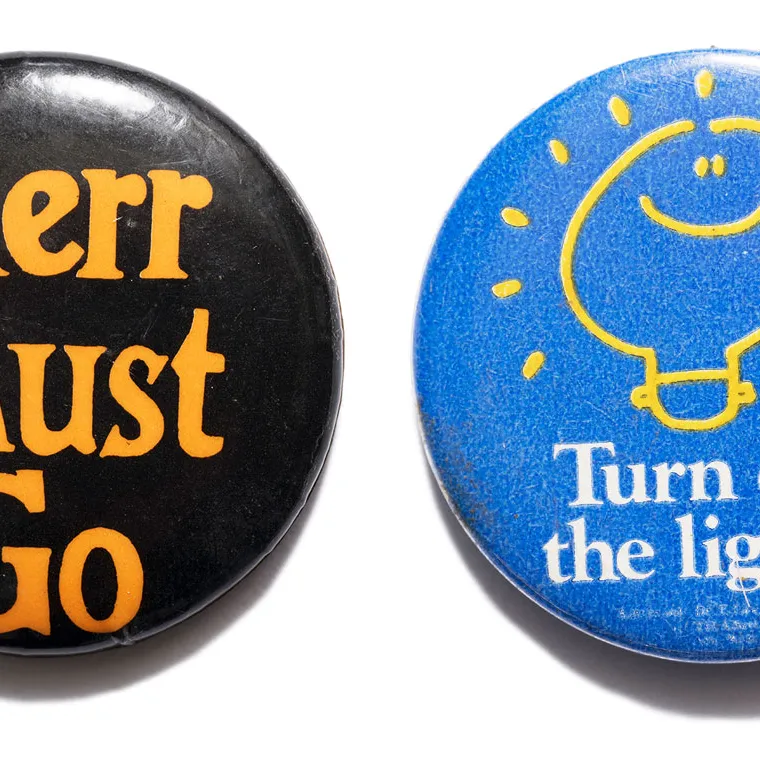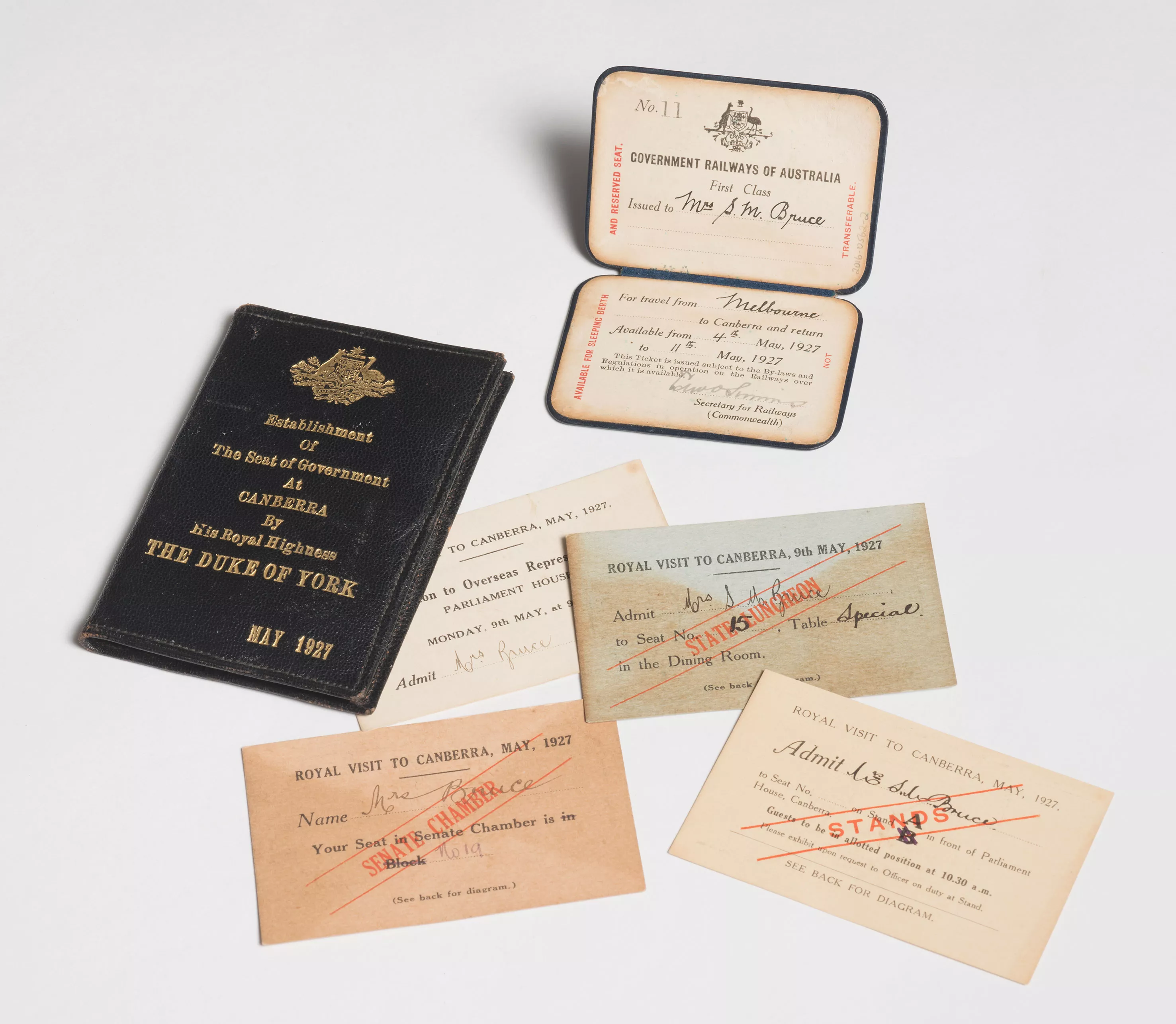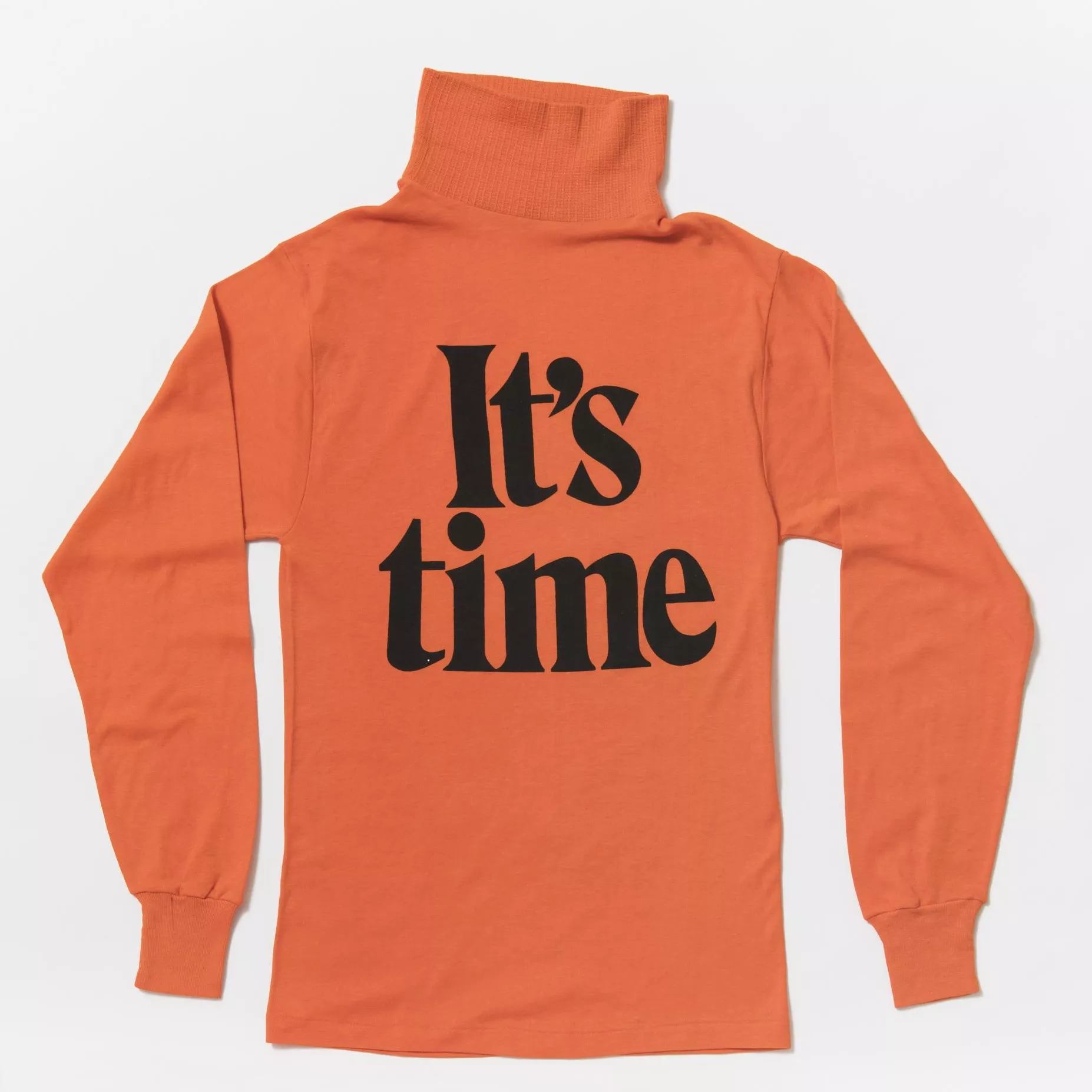Badges from the 1975 federal election campaign
Maintaining the rage and turning on the lights.
These badges were used by supporters of the Labor and Liberal parties respectively during the federal election campaign of 1975. The election was called following the dismissal of the Whitlam government and the appointment of Malcolm Fraser as caretaker prime minister by Governor-General Sir John Kerr.
The Labor badge bears the slogan 'Kerr must go'. This was a common refrain among Labor faithful, who believed the dismissal was unjust. Ire was focused on Kerr as well as Fraser – 'Shame Fraser Shame' and 'Cheats shouldn't prosper' were other common slogans used by the Labor campaign. Labor's tactic was to concentrate on the perceived injustice of Kerr's actions and urge voters to return Gough Whitlam to office and 'restore democracy'.
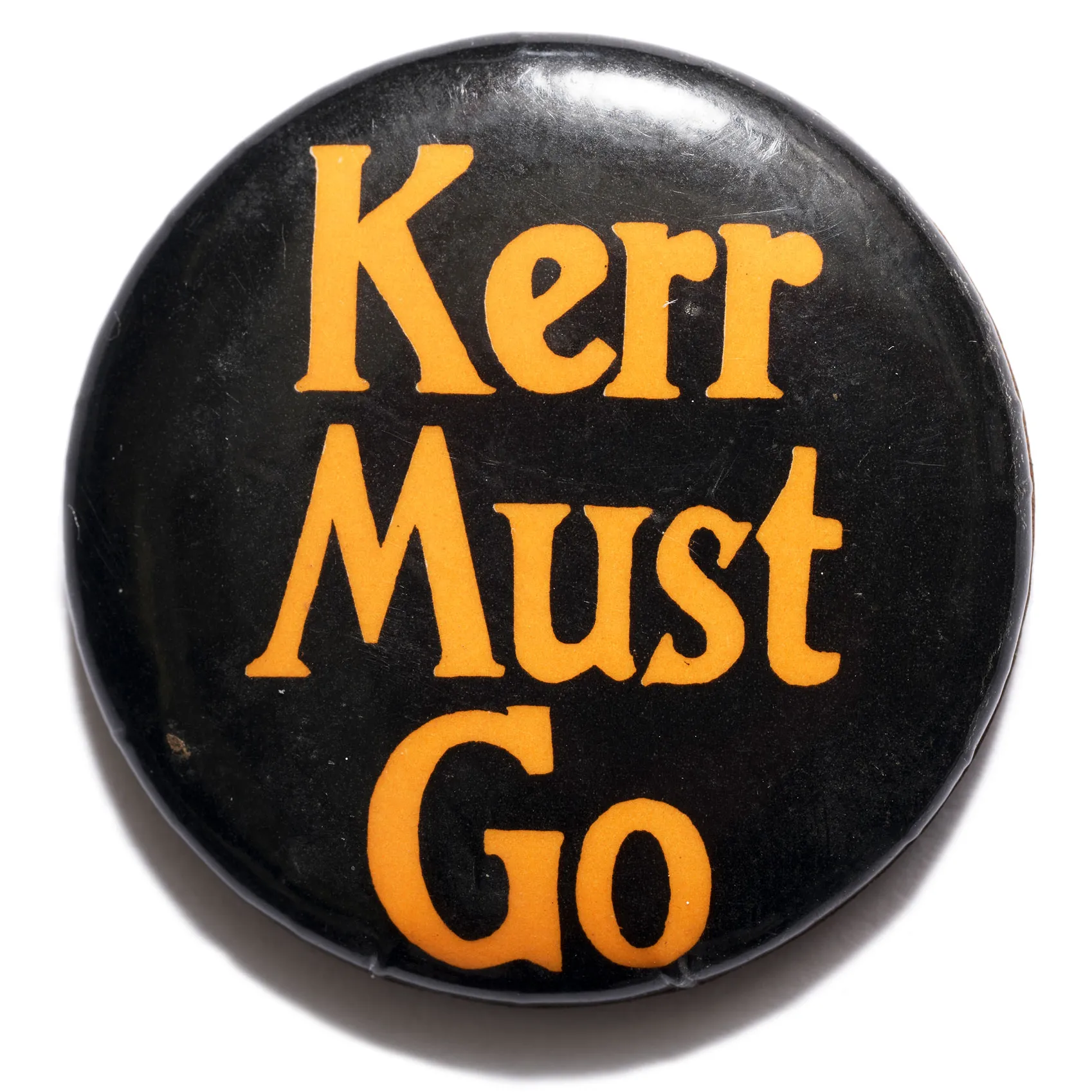
The Liberal campaign chose to focus on bread-and-butter issues and the economic situation. The 1973 Yom Kippur War, a global oil shock and other factors had caused economic hardship in many countries and Australia was no exception. The Liberal-National Country Coalition blamed Whitlam and Labor for the state of the economy, pointing to several key decisions they said worsened things for Australians. The Liberal Party's slogan was 'Turn on the lights', which referenced an old joke – 'Will the last businessman to leave please turn off the lights?', told in many countries to criticise government economic policy.
The Liberal slogan was the central feature of a campaign commercial, with a song by Renée Geyer. The 22-year-old Geyer was an up-and-coming star and later distanced herself from the song and the Liberal campaign. The song had echoes of the successful 1972 Labor election campaign 'It's Time' commercial, and its accompanying song by Allison McCallum.
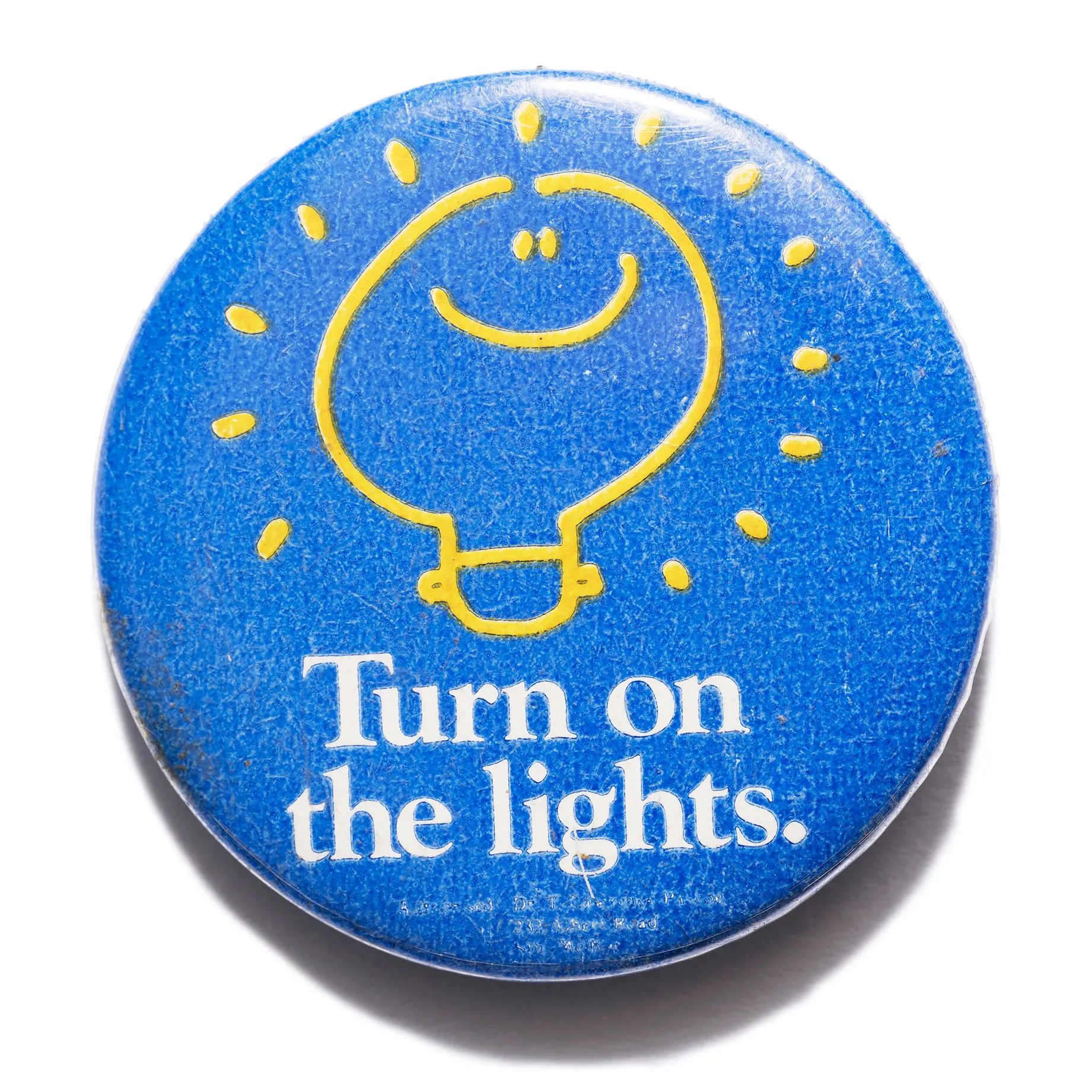
As the campaign went on, the dismissal became less relevant in the minds of voters and economic issues took precedence. On 13 December, the Liberal-National Country Coalition won a landslide victory, with 55% of the two-party vote and 91 seats in the House of Representatives. It also won a majority in the Senate, something which had eluded and frustrated Whitlam.
Kerr and Whitlam never spoke to one another again following the dismissal. In their respective memoirs, they disagreed on key facts around the events of 1975, but both did agree that had Labor won the election, Kerr's position would have been untenable and he would have resigned. Even despite the Coalition's landslide victory, Kerr remained unpopular. He offered his resignation to Fraser, but was persuaded to remain in office, ultimately resigning in 1977 to become Australia's Ambassador to the United Nations Educational, Scientific and Cultural Organization (UNESCO).
What made the 1975 election unusual?
Labor had come to power in the 1972 federal election. In May 1974, a double dissolution was held less than halfway through the term of parliament because legislation had been blocked in the Senate. The 1975 dissolution took place eighteen months later. It was therefore the third election in as many years – normally, elections are around three years apart. Another early election was held in 1977.

